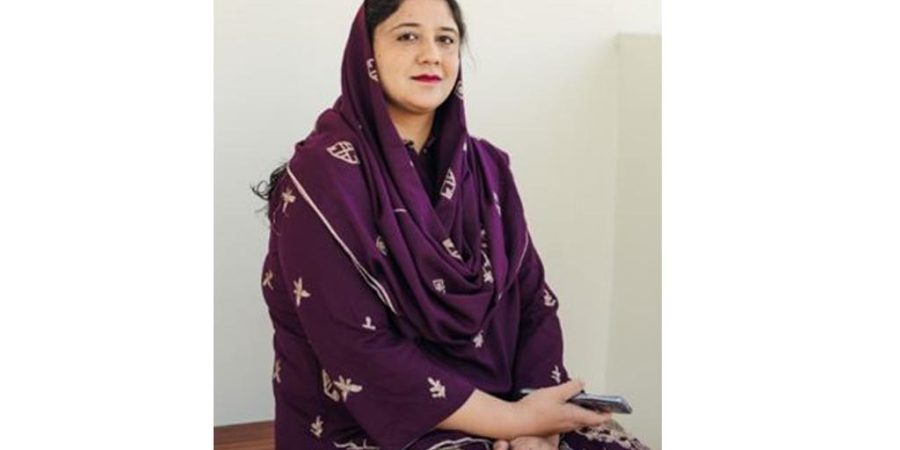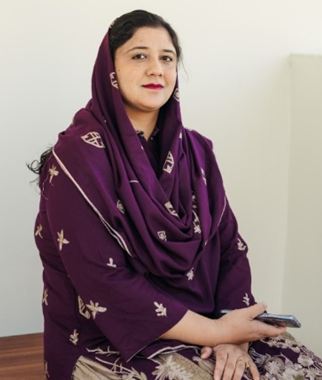Worrying about the women’s rights scenario in Afghanistan, what can be done?
 The situation for women and girls in Afghanistan has significantly worsened since the Taliban took power in August 2021. Under the Taliban, women’s rights and access to civil liberties have greatly been restricted, and women have been excluded from public life.
In December 2022, the Taliban, banned women from attending public and private universities, citing reasons such as their alleged failure to adhere to the Taliban’s interpretation of the Islamic dress code, as well as their interactions with male colleagues. This decision is a major setback for women’s education and empowerment in Afghanistan.
One of the major challenges facing Afghanistan today is the empowerment and inclusion of women in the economic, political, and educational systems. The country is situated in a region with strong patriarchal traditions, and many Afghan women, particularly those living in rural areas, face significant subjugation and oppression.
Despite some progress in recent years, Afghan women continue to face barriers to education, employment, and political participation. Women in rural areas are particularly vulnerable, with a high percentage of them living in poverty and experiencing fear of violence. The Afghan government and international community must address these issues and work towards empowering women and improving their rights and opportunities.
On December 25, 2022, several major international non-governmental organizations (NGOs) announced that they had to halt their work in Afghanistan following the Taliban’s decision to ban women from working for them. These organizations, including Care International, the Norwegian Refugee Council (NRC) and Save the Children, stated that they were unable to continue their operations without their female staff.
This decision by the Taliban has significant consequences, not only for the organizations themselves but also for the communities they serve. These NGOs have been providing much-needed aid and services to some of the most vulnerable populations in Afghanistan, including women and children.
Female political and educational empowerment are both crucial for the overall development and stability of Afghanistan. However, in Afghanistan, access to education remains a major challenge, particularly for girls. According to UNICEF, in 2016 an estimated 3.7 million children were out of school, with 60% being girls.
President Ashraf Ghani also established the High Council for National Reconciliation, which was created as a higher body that supervises, monitors, and directs the negotiating team. Out of the 46 members appointed to serve on the council, 9 are women. It is a positive sign to see women included in both of these negotiating groups; however, many are not convinced.
Research has shown that when women are actively included in peace processes, the chances of successful outcomes are higher. However, the participation of women mustn’t be tokenistic, but rather leads to substantive change that empowers women in all aspects of society including economically, politically, and educationally. This requires a commitment from Afghan leaders to enact policies and initiatives that support gender equality and the empowerment of women. Thus, even though it is true that the Taliban’s failure to keep their promises vis-á-vis women’s rights did lead to loud criticism in world capitals, what the international community is currently offering Afghan women is only a little more than pity. But in light of what the year 2022 has brought for Afghan women—especially with the Taliban returning to its brutal policies of the 1960s—the international community must acknowledge and act on its moral responsibility to lend unequivocal support to the Afghan women, who are being denied the basic of the dignity of life.
To effectively empower women in Afghanistan and ensure their status as full citizens, policymakers and development actors need to take into account the diversity and complexity of Afghan society. This includes recognizing and understanding the traditional values and power structures that shape women’s roles and opportunities. It is also important to engage with and empower women’s groups and civil society organizations, which can play a critical role in advocating for women’s rights and promoting gender equality.
In addition to these societal-level changes, institutional changes are also necessary to foster an environment that supports women’s empowerment. This includes policies and initiatives that promote women’s participation in political and policy-making processes, as well as efforts to address and overcome discrimination and gender-based violence. Ultimately, a comprehensive and holistic approach that takes into account both societal and institutional factors is needed to achieve true empowerment for women in Afghanistan.
The situation for women and girls in Afghanistan has significantly worsened since the Taliban took power in August 2021. Under the Taliban, women’s rights and access to civil liberties have greatly been restricted, and women have been excluded from public life.
In December 2022, the Taliban, banned women from attending public and private universities, citing reasons such as their alleged failure to adhere to the Taliban’s interpretation of the Islamic dress code, as well as their interactions with male colleagues. This decision is a major setback for women’s education and empowerment in Afghanistan.
One of the major challenges facing Afghanistan today is the empowerment and inclusion of women in the economic, political, and educational systems. The country is situated in a region with strong patriarchal traditions, and many Afghan women, particularly those living in rural areas, face significant subjugation and oppression.
Despite some progress in recent years, Afghan women continue to face barriers to education, employment, and political participation. Women in rural areas are particularly vulnerable, with a high percentage of them living in poverty and experiencing fear of violence. The Afghan government and international community must address these issues and work towards empowering women and improving their rights and opportunities.
On December 25, 2022, several major international non-governmental organizations (NGOs) announced that they had to halt their work in Afghanistan following the Taliban’s decision to ban women from working for them. These organizations, including Care International, the Norwegian Refugee Council (NRC) and Save the Children, stated that they were unable to continue their operations without their female staff.
This decision by the Taliban has significant consequences, not only for the organizations themselves but also for the communities they serve. These NGOs have been providing much-needed aid and services to some of the most vulnerable populations in Afghanistan, including women and children.
Female political and educational empowerment are both crucial for the overall development and stability of Afghanistan. However, in Afghanistan, access to education remains a major challenge, particularly for girls. According to UNICEF, in 2016 an estimated 3.7 million children were out of school, with 60% being girls.
President Ashraf Ghani also established the High Council for National Reconciliation, which was created as a higher body that supervises, monitors, and directs the negotiating team. Out of the 46 members appointed to serve on the council, 9 are women. It is a positive sign to see women included in both of these negotiating groups; however, many are not convinced.
Research has shown that when women are actively included in peace processes, the chances of successful outcomes are higher. However, the participation of women mustn’t be tokenistic, but rather leads to substantive change that empowers women in all aspects of society including economically, politically, and educationally. This requires a commitment from Afghan leaders to enact policies and initiatives that support gender equality and the empowerment of women. Thus, even though it is true that the Taliban’s failure to keep their promises vis-á-vis women’s rights did lead to loud criticism in world capitals, what the international community is currently offering Afghan women is only a little more than pity. But in light of what the year 2022 has brought for Afghan women—especially with the Taliban returning to its brutal policies of the 1960s—the international community must acknowledge and act on its moral responsibility to lend unequivocal support to the Afghan women, who are being denied the basic of the dignity of life.
To effectively empower women in Afghanistan and ensure their status as full citizens, policymakers and development actors need to take into account the diversity and complexity of Afghan society. This includes recognizing and understanding the traditional values and power structures that shape women’s roles and opportunities. It is also important to engage with and empower women’s groups and civil society organizations, which can play a critical role in advocating for women’s rights and promoting gender equality.
In addition to these societal-level changes, institutional changes are also necessary to foster an environment that supports women’s empowerment. This includes policies and initiatives that promote women’s participation in political and policy-making processes, as well as efforts to address and overcome discrimination and gender-based violence. Ultimately, a comprehensive and holistic approach that takes into account both societal and institutional factors is needed to achieve true empowerment for women in Afghanistan.

« Putin, Saudi crown prince discuss OPEC+ cooperation (Previous News)
(Next News) Extended Central Asia seminar launched in Dushanbe »
Related News

BRICS Unites as the West Fragments
By Qamar Bashir The BRICS 2025 Summit in Rio de Janeiro was far more thanRead More

When the Rains Turn Ruthless
by Muhammad Mohsin Iqbal Even before the arrival of the monsoon, various parts of PakistanRead More


Comments are Closed